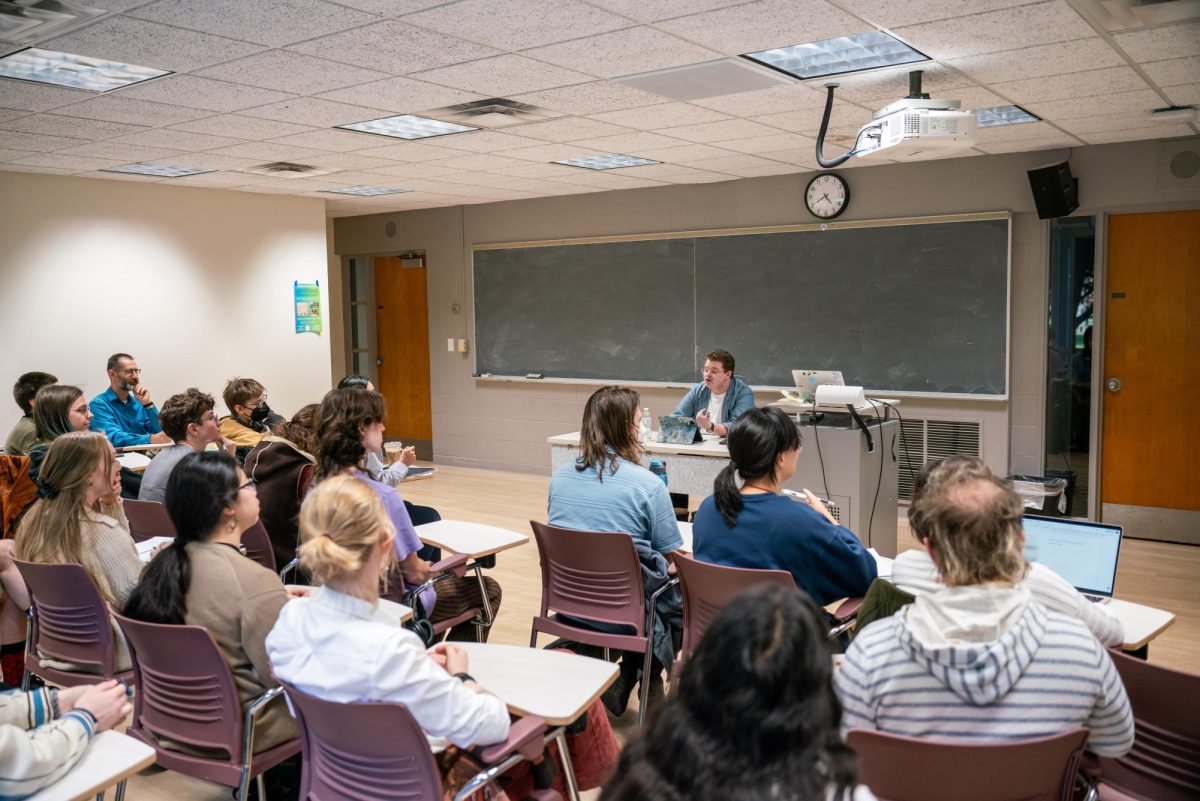Emotional Focus Puts Facts Second in Politics
March 10, 2017
Since the election, President Donald Trump’s opponents have struggled to find their role in the new era. Political norms seem irrelevant and liberals are struggling to make themselves heard. Two weeks ago in the Review, Will Cramer suggested that activists rely on intuition over facts to make arguments, particularly in regard to immigration reform (“Immigration Raid Discourse Requires Moral Intuition,” Feb. 24, 2017). I agree that appealing to people’s compassion and morality can be persuasive. I also share in Cramer’s frustration about the cold, empirical politics of establishment Democrats. But this perspective, fairly prevalent among Oberlin progressives, could exacerbate the anti-truth trend in American politics.
I can’t overstate the danger of “alternative facts” (credit to the President’s advisor Kellyanne Conway for that term). Knowledge is power in a democracy. How can we productively contribute to public policies if we don’t understand relevant issues and candidates?
Trump and his administration pose a serious threat to objectivity in Washington and, by extension, the United States. A month ago, for instance, Conway cited a nonexistent massacre in Bowling Green as evidence to support Trump’s travel ban. Then, White House Press Secretary Sean Spicer barred prominent news organizations from a press briefing. They have demonstrated a dangerous desire to control what information reaches the public. But, not to be outdone, Trump continues make baseless, misleading statements and accusations that Republican officials largely refuse to denounce.
Current conservative policies ignore facts on gun violence, climate change, immigration and other critical issues. That disparity between the truth and recent legislation is frightening. We know that the majority of Americans support background checks for gun purchases, that global climate change is caused by human activity and that no immigrants from the countries targeted by Trump’s travel ban have ever been responsible for terrorist-related deaths in the U.S. Yet legislation continues to be crafted around this misinformation.
Republicans are not the only ones who sometimes veer from the truth. The same could be said about progressive economics or other Democratic policies. As exciting and inspiring as I find Senator Bernie Sanders, for instance, I admit that some of his platform was discredited in academic circles, particularly by economists. Often, Democratic leaders like Hillary Clinton or Senator Elizabeth Warren rely on emotional appeal in political debate, framing opponents as not just factually wrong but morally wrong.
When policies blatantly ignore the truth, we need to return authority to science, data and facts. Misinformed policy needs to be rejected, no matter where it falls on the political spectrum.
Trump’s opponents must ground their arguments in truth. I admit that basing decisions solely on facts, rather than emotion, can seem callous. Liberals are only human; like everybody else, we’re prone to trusting our feelings rather than facts. But when we govern with our feelings, we’re susceptible to biased views of reality. This vulnerability is especially dangerous now, as our executive branch censors and distorts the truth.
Our knowledge is our power. Without it, we have no concept of what works and what doesn’t, and, to a deeper extent, what is right and what is wrong.
It’s impossible to isolate instinct or emotion from our policies entirely, I know. However, if recent political history is any indication, we need to contain instinct in favor of rationality. Trump embodies our post-truth era. He has demonstrated appalling ignorance and unwillingness to learn, as well as a bias towards ideas that flatter him. There is no “factually correct” in that culture. There is only “I’m right and you’re wrong.”
Democracy cannot thrive without diversity and debate. Yet liberals often seem to share Trump’s preference for people and ideas that agree with us. We must be vigilant in challenging our ideas to ensure they are fully grounded in science and truth.


















